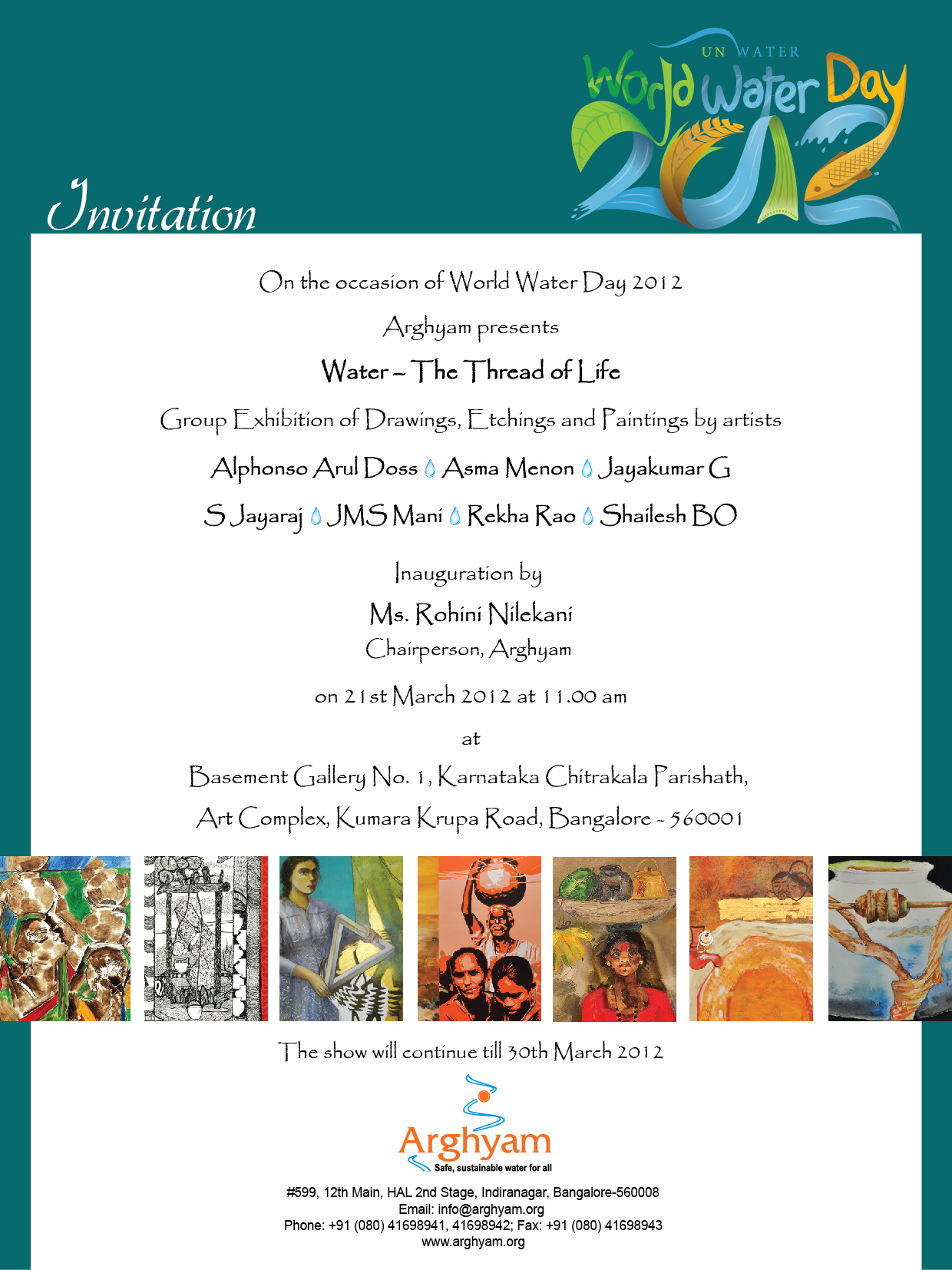/topics/society-culture-religion-and-history
Society, Culture, Religion and History
Rohini Nilekani, Chairperson of Arghyam announces transition in leadership: Jayamala Subramaniam to take over from 1st June, 2012
Posted on 13 Apr, 2012 05:44 PMShe comes to Arghyam with a background in the corporate and not for profit sectors, both in India and abroad. She has a record of achievement in taking initiatives to scale in the financial and education sectors and substantial experience as a coach and mentor.
"Resources, tribes and the State" - A report on an international seminar, organized by the Arunachal Institute of Tribal Studies at Itanagar, Arunachal Pradesh, in February 2012
Posted on 11 Apr, 2012 04:10 PMGuest post by: Raju Mimi
The return of the earthworm: Association for India's Development's (AID-JHU) practicing organic farming in the Sunderbans
Posted on 08 Apr, 2012 10:51 PMArticle and Video Courtesy : Association for India's Development - Johns Hopkins University
Author : Nishikant
Water Integrity Network invites applications for 3rd Water Integrity Network photo competition – Apply by June 2, 2012
Posted on 06 Apr, 2012 09:06 AM
The Water Integrity Network (WIN) was formed in respond to increasing concerns among water and anti-corruption stakeholders over corruption in the water sector. It combines global advocacy, regional networks and local action, to promote increased transparency and integrity, bringing together partners and members from the public and private sectors, civil society and academia, to drive change that will improve the lives of people who need it most. WIN’s vision is a world with equitable and sustained access to water and a clean environment, which is no longer threatened by corruption, greed, dishonesty and wilful malpractice.
Impact report of watershed development programme in Ayyannapalem village of Guntur district in Andhra Pradesh
Posted on 19 Mar, 2012 11:59 AMAuthor : Kotikala Chandrasheakar
Name of the watershed: Ayyannapalem
Name of the Mandal: Bollapalli
District: Guntur
Best meal of the day': Akshaya Patra's kitchen in Nathwara, Rajasthan is the newest of its high-technology ones across India
Posted on 19 Mar, 2012 10:23 AMArticle and Image Courtesy : One World South Asia
Author : Madhusmita Hazarika
Water – The Thread of Life, a group exhibition of contemporary artists, Arghyam, March 21-30, 2012, Karnataka Chitrakala Parishath, Bangalore
Posted on 15 Mar, 2012 09:00 AMOrganizer: Arghyam
Venue: Karnataka Chitrakala Parishath, Bangalore

Arghyam is a public charitable foundation setup with an endowment from Mrs. Rohini Nilekani, working in the domestic water and sanitation sector in India since 2005. Arghyam supports projects to promote water and sanitation security with stress on people’s participation and awareness. Domestic water is primarily a women’s burden and disproportionately impacts women and the girl-child in multiple ways. Therefore, promoting gender equity is an important facet of Arghyam’s work. The projects are spread across all geographies – deserts, mountains, flood-prone regions, rain-fed, coastal and tribal areas, representing the diversity in the country.
Call for Papers, UGC sponsored National Seminar on Understanding Communities of North East India, 20-21 March, 2012, Guwahati – Apply by March 15, 2012
Posted on 13 Mar, 2012 08:22 AM
Description:
The concept of community has generated immense interests in the academia across disciplines and over time raising methodological, analytical and theoretical concerns rife with differences in its treatment. Compounded by contemporary social dynamics such as pertaining to globalisation, economic changes, state, politics, migration, modern technology, gender, development, etc. and the emergence of new perspectives and new areas of research the understanding of communities has undergone significant changes.
The seed map - food, farmers and climate chaos: Shows the state of global agro-biodiversity today
Posted on 06 Mar, 2012 06:38 PMArticle Courtesy : Seedmap






